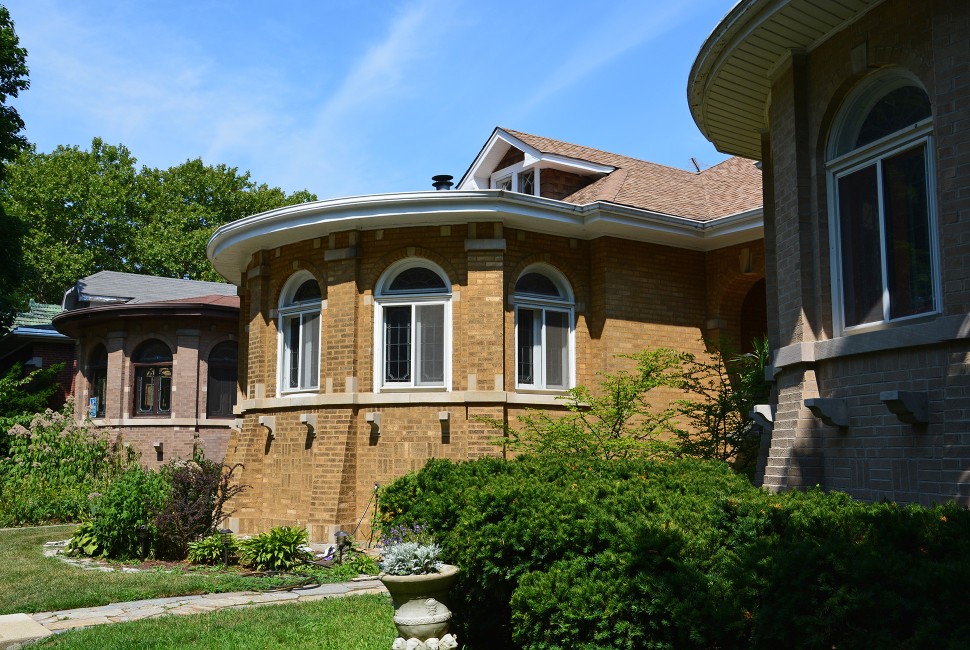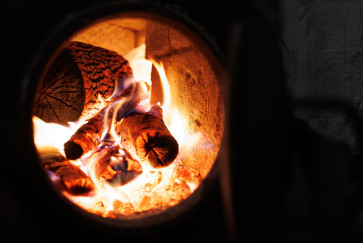With Chicago and much of the Midwest facing what may be the hottest days of the summer this week, many are cranking up the air conditioning and heeding the advice of officials to stay inside.
But cool indoor air is a luxury out of reach for many, including those who cannot afford central air conditioning. Many families without it are unwittingly exposed to extreme heat, which is the leading cause of weather-related deaths across the United States, according to a new study by the nonprofit Elevate, Northwestern Professor Daniel Horton, and a coalition of advocates from across Chicago.
The research findings are published by Elevate, a nonprofit that works to implement equitable climate solutions, and the Illinois Institute of Technology. The publication includes contributions from Chicago’s Department of Environment (DOE) and the Chicago Department of Public Health (CDPH). It was funded by Northwestern University’s Buffett Institute for Global Affairs through its Defusing Disasters Working Group, which is developing Chicago’s first public health-informed Heat Vulnerability Index (HVI).
Findings show extreme conditions in many homes, with a maximum heat index of over 120°F.
“Recent decades have seen outdoor summer nighttime temperatures increase at twice the rate of outdoor summer daytime temperatures, with human-caused climate change partly to blame,” said Horton, professor of Earth and planetary sciences and co-lead of the Buffett Institute’s Defusing Disasters HVI development project. “Warmer nights limit the body’s ability to recover from daytime temperature extremes, which exacerbates health risks. These hazardous climatic patterns, coupled with the indoor temperature findings presented in this study, suggest that heat mitigation efforts are needed to protect society’s most vulnerable, both indoors and out.”
Studying Chicago homes during a heatwave
Researchers collected data on the indoor temperature and humidity of 10 Chicago homes for about four weeks during the summer of 2023, which included one of the city’s hottest heatwaves on record. The 10 homes represent the five most common housing types in Chicago. During the summer’s worst heatwave, all of the homes monitored reached the National Weather Service’s “Extreme Caution” heat index threshold of 90°F. The heat index findings show extreme conditions in many of the homes, with a maximum heat index of 120.1°F and a maximum heat index differential of 32°F within one home, between the basement and second floor.
“Simply put, Chicago residents need greater access to affordable cooling in their homes to stay safe during increasingly frequent and intense heatwaves,” said Elevate CEO, Dr. Anne Evens. “Thankfully, there’s an influx of city, utility and federal funding to help homeowners and renters increase energy efficiency and install heat pumps that provide both heating and cooling in homes. This is an opportunity to prioritize seniors who live alone [and] occupants that have chronic health conditions or may be vulnerable, as well as homes that lack central cooling.”
As climate patterns shift, average summer temperatures in Chicago are expected to rise higher and sooner in the season. Extreme heat waves are projected to become more frequent, intense and prolonged.
Developing a public health-based heat vulnerability index
The Buffett Institute’s Defusing Disasters Working Group, community organizations, CDPH and DOE are working with Elevate to address heat vulnerability due to climate change.
Last year, Elevate and Illinois Tech coordinated the indoor air temperature study with Heat Watch Chicago, a part of NOAA’s Urban Heat Island Mapping Campaign, to measure outdoor air temperatures across all 77 Chicago community areas.
After Heat Watch Chicago, the Defusing Disasters Working Group is collecting climate data, Chicago death certificate data from the last 30 years and health, geographic and demographic data to better understand who is most vulnerable to hot weather. These data will be used to develop a community-driven, data-informed, public health-based heat vulnerability index (HVI) that will assist the city in developing policies, programs and strategies to improve heat resiliency in Chicago communities.


